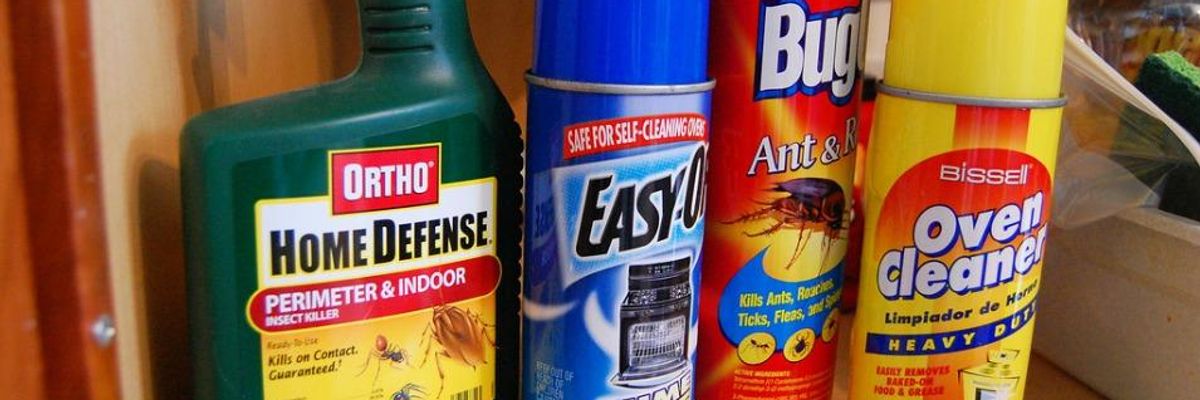The leading trade organization and lobbyist for the chemical industry left its computerized fingerprints all over a chemical safety reform bill being debated this week in Congress, according to "rudimentary digital forensics" performed by Hearst News Service.
The findings, revealed the day before Wednesday's Senate Environmental and Public Works Committee hearing on the legislation, support environmental and public health advocates' claim that the bill is backed by the very industry it is meant to regulate.
"In recent days, a draft of the bill--considered the product of more than two years of negotiation and collaboration between Sen. David Vitter (R-La.) and Sen. Tom Udall (D-N.M.), and both chemical industry and environmental groups--was circulated by Udall's office ahead of the hearing," writes Hearst Washington bureau chief David McCumber. "The draft bill, obtained by Hearst Newspapers, is in the form of a Microsoft Word document. Rudimentary digital forensics--going to 'advanced properties' in Word--shows the 'company' of origin to be the American Chemistry Council."
U.S. Sen. Barbara Boxer (D-Calif.), who has introduced a competing bill that is favored by health, environmental, and consumer advocates, criticized what she perceived as industry influence over policy-making.
"It was clear from the computer coding that the final draft originated at the American Chemical Council itself," she said on Tuesday, having seen a copy of the document. "Maybe I'm old fashioned, but I do not believe that a regulated industry should be so intimately involved in writing a bill that regulates them."
And Environmental Working Group president Ken Cook, who was scheduled to testify against the Vitter-Udall bill at Wednesday's hearing, added: "We're apparently at the point in the minds of some people in the Congress that laws intended to regulate polluters are now written by the polluters themselves."
